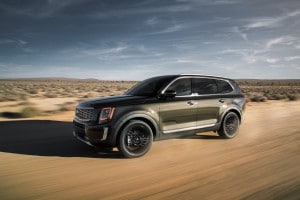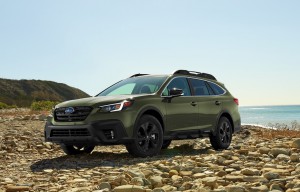
The 2020 Hyundai Palisade is emblematic of the transformation of the automaker’s product portfolio in recent years.
TrueCar, online car-shopping platform and its data and analytics subsidiary, ALG, are predicting mild winter weather will boost sales of new vehicles 0.2% during February from a year ago when adjusted for the same number of selling days.
After a slow start in January, February’s monthly, seasonally adjusted annualized rate for total light vehicle sales is an estimated 17.1 million units. Excluding fleet sales, ALG expects U.S. retail deliveries of new cars and light trucks to increase 1.2% from a year ago when adjusted for the same number of selling days.
“Although consumer confidence is stable and economic fundamentals remain strong, consumers are still receiving a lot of mixed messages about the economy,” said Eric Lyman, Chief Industry analyst at ALG, in a release.
(Global auto sales expected to fall 2.5% this year as coronavirus spreads.)
“The fact that we’re in an election year, the coronavirus is starting to have a global impact and that we’re beyond the normal cycle for a recession all combine to create a sense of uncertainty,” he said.

Kia has been playing catch-up in the SUV market but scored big with the introduction of the all-new Telluride, its biggest ute ever.
Toyota, Nissan and Volkswagen have joined Detroit’s automakers in pulling back from reporting monthly sales number so the actual numbers reported by manufacturers will be relatively thin, but the group was able to make some educated guesses.
Kia and Hyundai have come a long way with their product portfolios. Once known as a seller of “value-driven” cars, the sibling automakers have progressed in the mainstream space with their upscale SUVs, the Hyundai Palisade and Kia Telluride.
Kia and Hyundai are continuing their momentum with increased sales this month. Kia is up 14.3% and Hyundai is up 11.6% respectively year-over-year for total sales, according to TrueCar’s estimates.
Subaru has made big strides in the past four years with a measured approach to production that ensured production matched demand. It has also benefited from consumer demand moving towards the styling and functionality that its products historically provide.
(China’s coronavirus crisis could cripple car production in the U.S.)
The Japanese automaker’s sales are up 3.3% year-over-year for total sales, likely due to the increased inventory to match elevated consumer demand, especially for its popular Outback and Forester SUVs.
In the luxury segment, Volvo has proven itself as a prominent player during the past four years. With a cohesive line-up of premium, design forward vehicles, Volvo is back at the top of the consideration list for luxury brand consumers.
BMW’s continues its 12-month positive sales streak and is expected to be up 9.3% year-over-year in total sales and up 6.5% on retail sales with incentives down by 2.2%.
Ford, Nissan and GM are expected to drop 6.7%, 14.4% and 1.8%, respectively, in total unit sales compared with a year ago. All three manufacturers are down on fleet unit sales year-over-year.

The BMW X6 M50i carries the “four-door coupe” style that’s very popular among SUV enthusiasts, helping drive the luxury brand’s sales in 2020.
Meanwhile, used vehicle sales for February 2020 are expected to reach 3,699,048, up 6% from a year ago and up 12% from January 2020. The average interest rates on new vehicle loans is 6.21%, based on TrueCar data.
(January new vehicle sales decidedly on the cool side.)
“Low interest rates on vehicle auto loans and mild winter weather thus far are contributing to a healthy sales month,” said Nick Woolard, Director of OEM and Affinity Partner Analytics at TrueCar. “We continue to see growth driven by new products, especially in the utility and crossover segments.”

